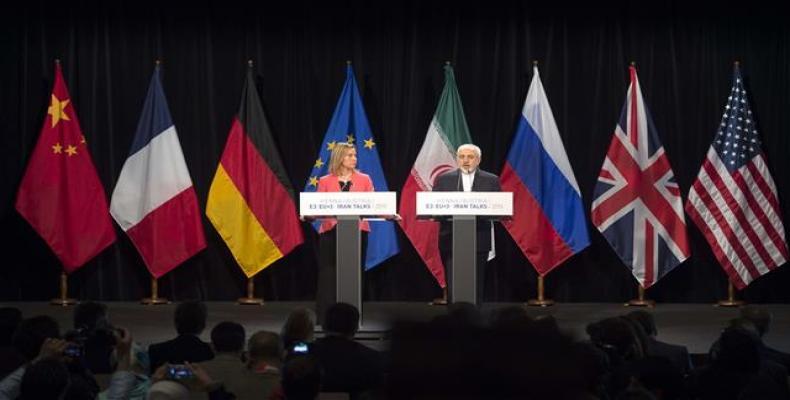Washington, July 24 (RHC)-- Israel's ambassador to the United States has called on the Republicans in the U.S. Congress to reject the successful conclusion of nuclear talks between Iran and the P5+1 group of countries, despite the Barack Obama administration's warning to officials not to work against the agreement.
During a meeting with House Republicans on Wednesday, Ron Dermer said a comprehensive nuclear accord with Iran will pave the way for a powerful nuclear Iran. And he said Congress is the last stop to thwart the agreement.
According to Representative Steve King, Dermer's message was: "'Congress is the last stop to avoid this, and if this Congress doesn't shut down the president's deal, it paves the way for not just a nuclear Iran but a very highly powered nuclear Iran, and it changes the dynamics in the region, it changes the destiny of the world.'"
King revealed that there was discussion of the possibility of overriding a potential presidential veto. "That's the pivot point on this altogether is can we in this Congress do something that would be historic and that's overriding a presidential veto on an agreement of this nature," King said.
Meanwhile, U.S. President Barack Obama slammed the lobbyists working against the nuclear accord. He urged Americans to reach out to their members of representatives to ensure it passes Congress.
After more than two weeks of intensive talks, Iran and the P5+1 group of countries - the U.S., Britain, France, Russia, China, and Germany -- announced the conclusion of nuclear negotiations in the Austrian capital, Vienna, on July 14.
According to the text of the Joint Comprehensive Plan of Action (JCPOA), Iran will be recognized by the United Nations as a nuclear power and will continue its uranium enrichment program.
But some restrictions will be placed on Iran's nuclear program in exchange for the removal of sanctions against the Islamic Republic.
Most Republicans oppose the nuclear agreement with Iran, but they need a two-thirds vote in both chambers of Congress to override a possible presidential veto, and to reach that threshold, Republicans need Democratic support.
The White House has launched a sales pitch to the Republican-controlled Congress, which remains skeptical of the nuclear accord with Iran, and has 60 days to vote to either approve or disapprove of it.


